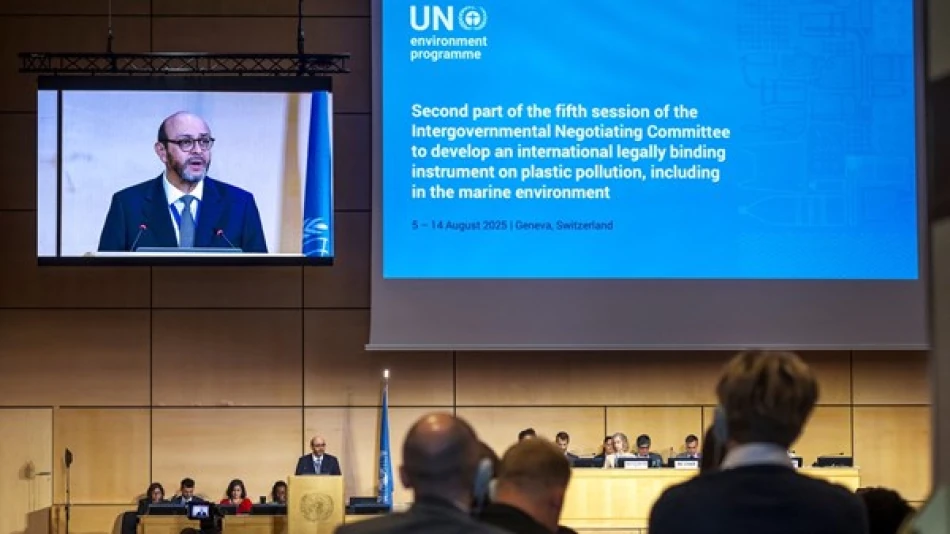
Slow Progress in Negotiations for Landmark Plastic Treaty Stalls Environmental Action
Global Plastic Pollution Treaty Talks Hit Critical Impasse as Disagreements Triple
International negotiations for the world's first legally binding treaty to combat plastic pollution have reached a critical stalemate, with disagreements among 184 governments multiplying fourfold as an August deadline looms. The talks, now in their most crucial phase, highlight the immense challenge of achieving global consensus on one of the planet's most pressing environmental crises.
Negotiations Expand Problems Rather Than Solutions
The latest draft treaty presented Friday night revealed the scale of the challenge facing negotiators in Geneva. What began as a 22-page document with 371 unresolved issues has ballooned into a 35-page text containing approximately 1,500 points of disagreement between national delegations.
Ecuadorian diplomat Luis Vayas Valdivieso, who chairs the UN discussions, acknowledged the insufficient progress. "There are still many questions without answers," he stated, emphasizing that negotiators have reached "a decisive stage where we need to make real progress to achieve our common goal" before the August 14 deadline.
High Stakes After Previous Failure
These Geneva talks represent a critical recovery attempt following the collapse of negotiations in Busan, South Korea, at the end of 2024. The failure in Busan underscored deep divisions between nations over how aggressively to tackle plastic production, waste management, and corporate accountability.
The current session, hastily arranged after the Busan disappointment, carries heightened pressure as environmental groups and scientists warn that delays in implementing global plastic pollution controls will have irreversible consequences for marine ecosystems and human health.
What's at Stake for Global Environmental Policy
The proposed treaty would mark the most significant international environmental agreement since the 2015 Paris Climate Accord. Success would establish binding commitments for plastic production limits, waste reduction targets, and cleanup responsibilities across nearly every nation on Earth.
However, the multiplication of disagreements suggests fundamental conflicts between developed and developing nations over implementation costs, production restrictions, and enforcement mechanisms. Major plastic-producing countries likely resist caps on manufacturing, while nations bearing the brunt of plastic waste pollution push for stronger measures.
Time Running Short for Breakthrough
With less than two months remaining before the August deadline, negotiators face mounting pressure to bridge substantial gaps. The expansion of unresolved issues from 371 to 1,500 indicates that technical working groups have uncovered more complexity rather than finding common ground.
Environmental advocates worry that without significant progress in Geneva, the treaty process could face indefinite delays, potentially derailing global momentum on plastic pollution at a time when scientific evidence shows the crisis accelerating rapidly across oceans and food chains worldwide.
Most Viewed News

 Layla Al Mansoori
Layla Al Mansoori






